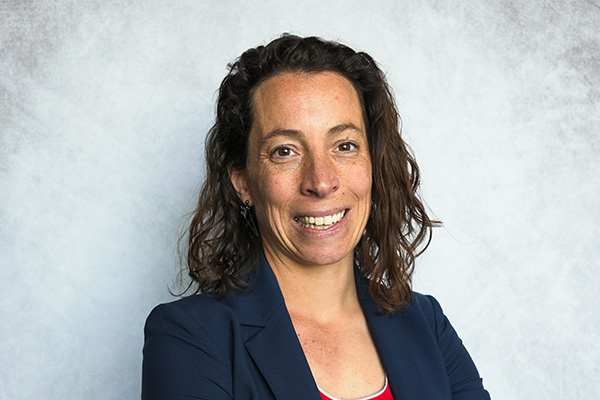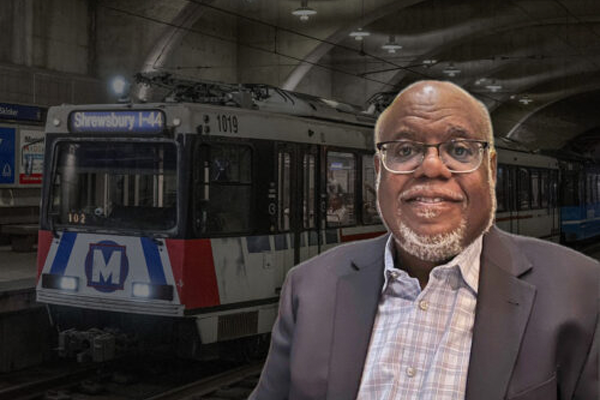From hard science to science policy
Alumna Sydnie Lieb uses her engineering knowledge to shape energy and climate public policy

As an undergraduate student majoring in mechanical engineering at the Engineering School at Washington University in St. Louis, Sydnie Lieb discovered her love for combustion science. But it was another discovery that informed her future career path in an unexpected way.
“I realized what I really wanted to solve were not science problems, but public policy problems,” Lieb said. “Instead of having an academic career, I wanted to work in science policy to bridge the gap between technical science work and durable public policy.”
Today she’s doing just that, as the new assistant commissioner of regulatory affairs for the Minnesota Department of Commerce’s Division of Energy Resources. Lieb leads the department’s advocacy at the Minnesota Public Utilities Commission on regulatory issues, which include regulation of gas, electric and telecommunications utilities, financial analysis, planning and policy, as well as Minnesota’s Energy Conservation and Optimization Program.
“The department serves as a consumer advocacy agency of the executive branch to protect the interests of Minnesotans,” Lieb said. “We advocate on behalf of Minnesotans for energy regulation, with an emphasis on achieving equitable outcomes and reducing disproportionate impacts of rate changes on disadvantaged communities while shaping policy to achieve the state’s ambitious clean energy mandates.”
Her path to the leadership role has seen her traverse the country, first from WashU to the University of Southern California, where she earned a doctorate in mechanical engineering with a focus in combustion emissions. In the years that followed, Lieb held multiple roles in industry and government, beginning with a non-traditional job for engineers: drafting patent applications and technical presentation materials for clean energy startups. Her next role, as an air pollution control specialist for the California Air Resources Board, helped her gain an understanding of how state regulation works before she moved to the federal level, analyzing greenhouse gas emissions data for the U.S. Environmental Protection Agency.
Lieb then returned to the Midwest, where she managed research for an energy consulting firm before taking on the role of energy and environmental policy manager for Xcel Energy, an electric utility and natural gas delivery company based in Minneapolis.
“Working in the utilities sector gave me new insight on issues like compliance and clean energy,” she said. “And how they balance clean energy goals with the day-to-day challenges of keeping the lights on.”
It also heightened her interest in returning to government. Her current position draws on her experiences in state and federal policy, as well as the foundation for discovery she built at WashU.
“The undergrad research opportunities were huge,” Lieb said. “I had a lot of autonomy to dig into interesting problems in a mentoring and nurturing environment.” She credits Dave Peters, the McDonnell Douglas Professor of Engineering, with encouraging her first foray into research by giving her the opportunity to work independently and publish.
Lieb also fondly remembers an unusual assignment given in her heat transfer class taught by Richard Axelbaum, the Stifel & Quinette Jens Professor of Environmental Engineering Science.
“The goal was to successfully model the heat transfer of the hot dog,” Lieb said, “You had to get the inside temperature right without overcooking the outside.”
It gave students a break from hard science and encouraged hands-on learning with classmates who, in Lieb’s case, became close friends.
Another opportunity for building relationships and skills outside of the classroom came when Lieb joined the WashU chapter of the Society of Women Engineers (SWE), in which she served as president her senior year. She continues to mentor students through the SWE chapter at the University of Minnesota, where she’s often asked for career advice — particularly when it comes to transitioning from hard engineering science to science policy.
She cites communication as a key skill that all engineers should strive to develop, and always reminds students to keep their options open.
“Don’t be afraid to take a job that looks different than what you wanted,” she said. “It’s OK to not know. If you need experience, volunteer. Look for opportunities and don’t be afraid to take them.”



